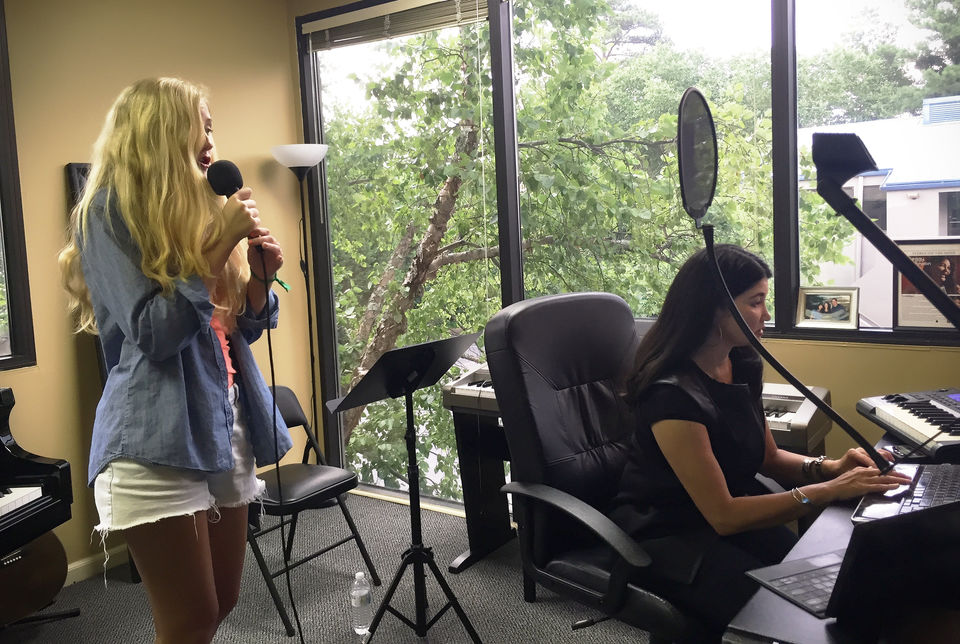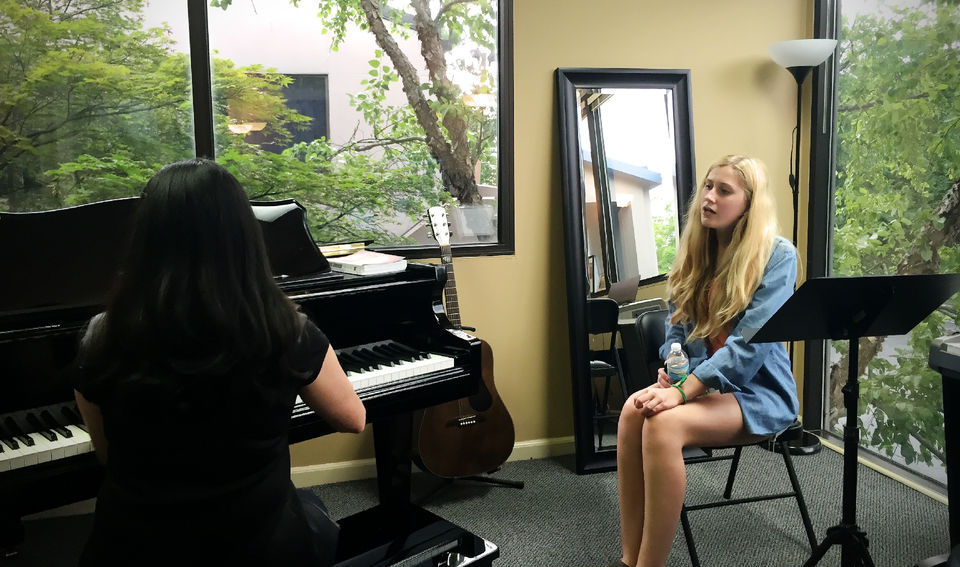Peggy Johnson’s fascinating music career continues to hit new highs as a world-touring singer, vocal coach, music supervisor, film composer, music school owner and now director of the prestigious Callanwolde Fine Arts Center in Atlanta, originally the home of the founder of Coca Cola’s family. Her popular Peggy Still School of Music founded in 1988 grew to three locations and 45 teachers before selling in 2011. Recognized as a music educator, Peggy serves on Boards for Georgia State University School of Music and The Recording Academy. She continues to help countless aspiring and successful singers including her work on projects with Stephen King and John Mellencamp and T Bone Burnett. And now, students of all ages who work with Peggy are enthusiastically introduced to Capo.
Maximizing Instructor Time
By at least age ten, Peggy finds students ready for Capo having learned the basics of major and minor chords, even if they don’t fully read music. With her more advanced students, Peggy finds that Capo helps ensure the teaching session stays focused on technique and artistry while these students check in Capo the chords they can’t figure out. “The instructor can say, ‘We’re not going to waste the entire session trying to figure out the chords!’ It saves time so you can focus on skills, technique, artistry and creativity,” Peggy explains. “Either way you have a point to start and can get to your other things they have to learn.”
Another teaching scenario where Peggy finds Capo adds considerable value is after drilling scales and chords, the instructor can rap the teaching session on a light note, “Now we’re going to work on a song that’s fun for 5-10 minutes (with Capo)!”



